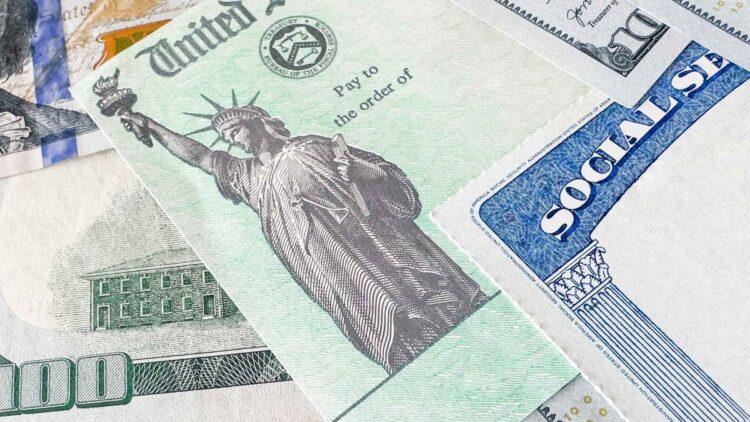World
Social Security Ends Paper Checks: What You Need to Know

The Social Security Administration (SSA) will cease issuing paper checks for monthly benefit payments starting on September 30, 2025. This significant change aims to enhance security and efficiency in the distribution of benefits. Only certain individuals will be eligible to continue receiving paper checks under specific conditions.
According to the SSA, exemptions will apply to beneficiaries who are over 90 years old, individuals with disabilities, or those living in remote areas without access to electronic payment methods. This decision aligns with the U.S. Department of the Treasury’s efforts to combat fraud associated with paper checks. The department emphasizes that electronic payments, such as direct deposits or Direct Express prepaid debit cards, are faster and less prone to theft or loss.
The transition to electronic payments marks a shift towards more secure and cost-effective methods of distributing benefits. The Treasury reports that it costs 50 cents to issue each paper check, compared to just 15 cents for an electronic payment. This move not only aims to reduce operational costs but also ensures that beneficiaries receive their payments without delays caused by postal service interruptions.
Beneficiaries who wish to continue receiving paper checks must take proactive steps. The SSA advises those eligible for exemptions to contact the Treasury’s Electronic Payment Solution line at 1-855-290-1545 or to print and send the official exemption request form. It is crucial for beneficiaries to plan ahead, as failing to do so may result in interruptions to their payments.
Understanding the New Payments System
The SSA is responsible for managing vital social programs, including retirement, disability, and survivor benefits. Its mission is to support economic stability for vulnerable populations. However, recent months have seen various changes in aid amounts and eligibility criteria, prompting the SSA to implement a new payment method.
Beginning on September 30, 2025, all monthly benefit payments will transition to electronic formats. Beneficiaries currently receiving paper checks will need to switch to direct deposit or obtain a Direct Express card. This electronic payment method is designed to streamline the distribution process and minimize the risk of fraud.
The Treasury’s position on paper checks as a security risk is clear. They state that “paper checks are increasingly the main gateway for fraud.” The shift to electronic payments aims to mitigate these concerns while ensuring that beneficiaries receive their funds promptly and securely.
How to Apply for an Exemption
While the SSA has not officially detailed the exemption application process, they have indicated that beneficiaries lacking alternative means to receive payments will still be accommodated. To switch to direct deposit, beneficiaries should contact their financial institution or apply for a Direct Express card. They can also update their payment details through the mySocialSecurity portal.
Those who believe they qualify for an exemption are encouraged to act swiftly. Contacting the SSA or the Treasury’s Electronic Payment Solution line is essential to avoid any disruptions in benefit payments. The upcoming changes represent a significant evolution in how the SSA delivers crucial support to millions, reflecting both technological advancements and a focus on safeguarding beneficiaries’ interests.
-

 Lifestyle3 months ago
Lifestyle3 months agoLibraries Challenge Rising E-Book Costs Amid Growing Demand
-

 Sports3 months ago
Sports3 months agoTyreek Hill Responds to Tua Tagovailoa’s Comments on Team Dynamics
-

 Sports3 months ago
Sports3 months agoLiverpool Secures Agreement to Sign Young Striker Will Wright
-

 Lifestyle3 months ago
Lifestyle3 months agoSave Your Split Tomatoes: Expert Tips for Gardeners
-

 Lifestyle3 months ago
Lifestyle3 months agoPrincess Beatrice’s Daughter Athena Joins Siblings at London Parade
-

 World3 months ago
World3 months agoWinter Storms Lash New South Wales with Snow, Flood Risks
-

 Science3 months ago
Science3 months agoTrump Administration Moves to Repeal Key Climate Regulation
-

 Science2 months ago
Science2 months agoSan Francisco Hosts Unique Contest to Identify “Performative Males”
-

 Business3 months ago
Business3 months agoSoFi Technologies Shares Slip 2% Following Insider Stock Sale
-

 Science3 months ago
Science3 months agoNew Tool Reveals Link Between Horse Coat Condition and Parasites
-

 Sports3 months ago
Sports3 months agoElon Musk Sculpture Travels From Utah to Yosemite National Park
-

 Science3 months ago
Science3 months agoNew Study Confirms Humans Transported Stonehenge Bluestones









